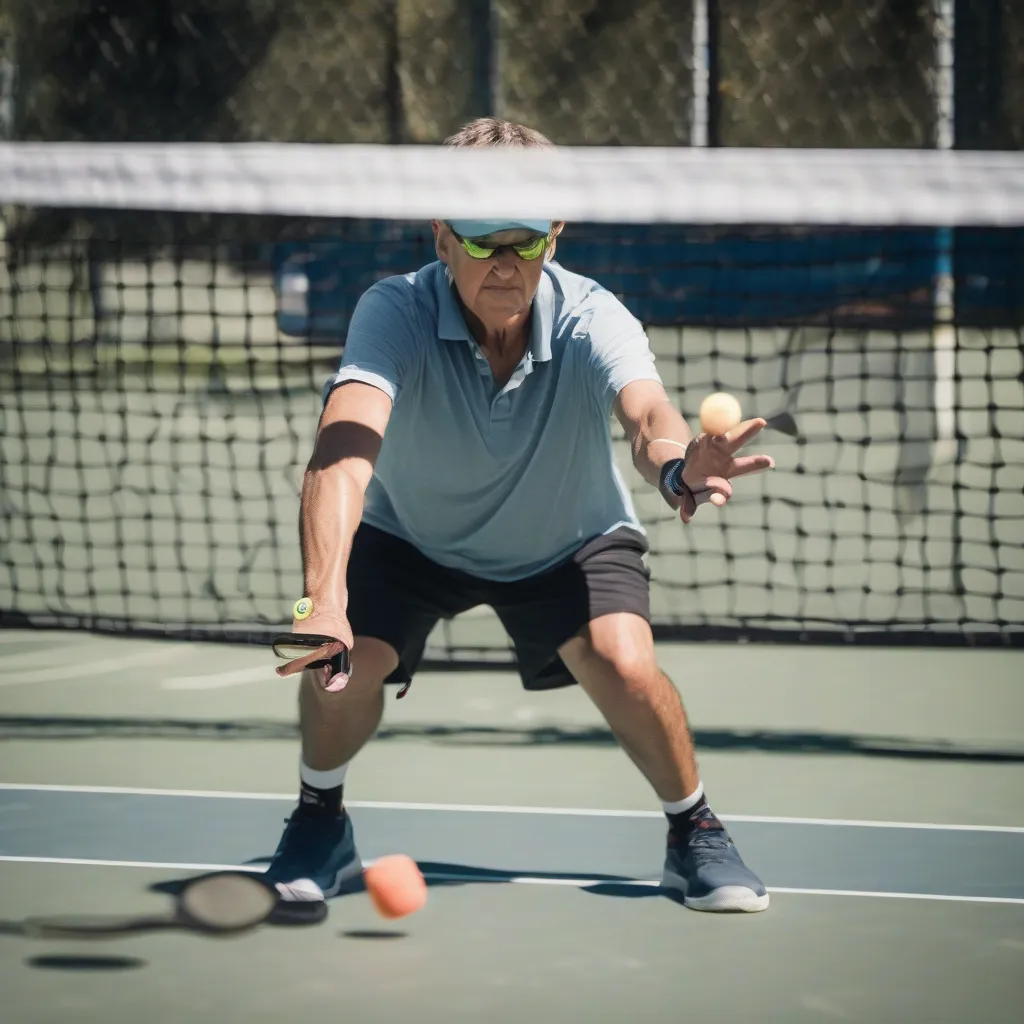Imagine this: you’re at the net in a heated pickleball match. The opponent smashes a forehand, and you, magically, are already positioned to volley it for a winner. That, my friends, is the power of anticipation. It’s not about predicting the future, but rather reading your opponent and the game itself to gain a crucial edge. In this article, we’ll dive deep into the role of anticipation in successful pickleball tactics, equipping you with the knowledge to take your game to the next level.
Understanding the Essence of Anticipation
Anticipation in pickleball is more than just a hunch; it’s a skill honed through observation, experience, and understanding of the game. It’s about recognizing patterns in your opponent’s movements, paddle position, and even their body language. Are they favoring a certain shot? Do they telegraph their dinks? By picking up on these subtle cues, you can anticipate their next move and position yourself accordingly.
Reading Your Opponent
One of the most crucial aspects of anticipation is reading your opponent. This involves observing their tendencies and habits on the court. For example, some players consistently hit to the backhand side, while others prefer to attack the middle. By identifying these patterns, you can better anticipate where the ball is going and react more quickly.
Recognizing Patterns of Play
Pickleball, like any sport, has its patterns. Understanding these patterns, such as the common placement of third shot drops or the tendency for rallies to develop at the non-volley zone line (NVZ), can significantly improve your anticipation. “Knowing the most likely next shot in a given situation is half the battle,” says a seasoned pickleball coach. This knowledge allows you to anticipate not only your opponent’s shots but also the overall flow of the point.
Developing Your Anticipation Skills
Like any skill, anticipation in pickleball requires practice and dedication. Here are a few drills and strategies to sharpen your anticipatory abilities:
Focused Practice Drills
Engage in drills specifically designed to enhance anticipation. One such drill involves having a partner feed you a series of shots, varying the speed, spin, and placement. Your goal is to anticipate where the ball is going and move into position before the ball even reaches your paddle.
Video Analysis
Record your games or practice sessions and analyze them closely. Pay attention to your opponent’s movements and your own reactions. This can help you identify areas where you can improve your anticipation.
Mental Rehearsal
Visualizing game scenarios and practicing your reactions mentally can also be beneficial. Imagine your opponent hitting a drop shot; how would you react? By mentally rehearsing these situations, you’ll be better prepared to respond instinctively during a real match.
The Payoffs of Anticipation
The benefits of honed anticipation skills are multifaceted:
Improved Reaction Time
By anticipating your opponent’s shots, you gain valuable milliseconds in reaction time, allowing you to move into position and execute your shots more effectively. This translates to more winners and fewer unforced errors.
Enhanced Court Coverage
Anticipation empowers you to cover more ground efficiently. Instead of reacting after the ball is hit, you can preemptively move towards the likely target area, improving your court coverage and defensive capabilities. This is particularly important in doubles pickleball, where coordinated movement and anticipation are key to success. Check out this article on advanced pickleball strategies to further enhance your gameplay: https://epickleball.org/advanced-pickleball-strategies-outplay/
Strategic Advantage
Anticipation gives you a strategic advantage by allowing you to dictate the pace and direction of the rally. By anticipating your opponent’s weaknesses, you can exploit them and force errors. As the saying goes, “A good offense is the best defense,” and anticipation is the cornerstone of a strong offensive strategy in pickleball. For effective doubles strategies, explore this resource: https://epickleball.org/doubles-strategies-for-pickleball-partners/
Anticipation in Different Game Scenarios
Anticipation plays a vital role in various game scenarios:
At the Net
Anticipation at the net is crucial for volleys and quick exchanges. Reading your opponent’s paddle angle and body language can help you anticipate the direction and speed of their volleys, allowing you to react swiftly and maintain an aggressive position.
At the Baseline
Anticipation from the baseline is essential for returning serves and groundstrokes. By anticipating the server’s placement and spin, you can position yourself for a more effective return.
In Doubles Play
In doubles, anticipation is paramount. Partners must communicate effectively and anticipate each other’s movements as well as their opponents’. Strategic communication plays a vital role in mixed doubles, as discussed in this helpful article: https://epickleball.org/importance-of-strategic-communication-in-mixed-doubles/
 Pickleball Anticipation
Pickleball Anticipation
Conclusion
Anticipation is an indispensable skill for any pickleball player seeking to elevate their game. It’s about reading the game, understanding your opponent, and positioning yourself for success. By incorporating the strategies and drills discussed in this article, you can sharpen your anticipatory skills and transform from a reactive player to a proactive one. Remember, anticipation isn’t just about reacting faster; it’s about thinking ahead and controlling the point. Now, go out there and anticipate your way to victory! What are your thoughts on the role of anticipation? Share your experiences and insights in the comments below.
- Baker, Joe (Author)
- English (Publication Language)
- Bond, Payton (Author)
- English (Publication Language)
- Anderson, Brian (Author)
- English (Publication Language)
- Palcic, Lisa (Author)
- English (Publication Language)
- Foster, Blake (Author)
- English (Publication Language)
- Carnot, Prem (Author)
- English (Publication Language)
- Hall, Dennis (Author)
- English (Publication Language)
- Callahan, John (Author)
- English (Publication Language)
- Publishing, Fitness Research (Author)
- English (Publication Language)
- Arthur, S. M. (Author)
- English (Publication Language)









